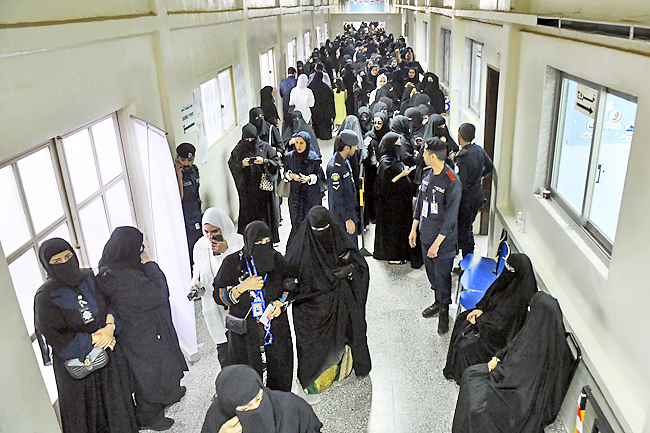KUWAIT CITY (AP) – Voters in Kuwait chose to shake up their Parliament, sending conservative figures and two women to the assembly in the nation’s second election in less than two years, according to results released on Friday.
The results from Thursday’s vote, which will bring 27 new members to the 50-member assembly, were seen as a mandate for change amid a prolonged period of gridlock between the Cabinet, which is appointed by the royal family, and the 50-member assembly, which is democratically elected and more independent than similar bodies across the region.
Voters appear to have been motivated by growing complaints about official corruption. Kuwait’s opposition accuses the government of graft and mismanagement, frequently grilling ministers over their involvement in the misallocation of public funds.
But experts said such candidates could push back on social reforms and protections of women’s rights and freedoms.
“If those candidates come forth with conservative social positions it will divide those who are pushing for reforms,” said Arab Gulf States Institute in Washington senior resident scholar Kristin Smith Diwan.

Two women were also elected, after the last elections in 2020 saw the sole female legislator in the assembly lose her seat.
Kuwaiti women have increasingly voiced frustration with Parliament’s failure to pass laws protecting women from abuse in the conservative society. The new assembly will include 27 new members, around a dozen of whom served in previous assemblies, local media reported.
Kuwait has the freest and most active assembly in the Persian Gulf, but political power is still largely concentrated in the hands of the ruling Al Sabah family, which appoints the prime minister and Cabinet, and can dissolve the assembly at any time. Crown Prince Sheikh Meshal Al Ahmed Al Jaber, an 82-year-old who has assumed many of the duties of the ailing 85-year-old emir, Sheikh Nawaf Al Ahmad Al Sabah, called the Thursday’s elections earlier this year when he dissolved Parliament.
Since the previous emir, Sheikh Sabah Al Ahmad Al Sabah, died two years ago, Kuwait’s long-standing political deadlock has worsened. Lawmakers have grilled ministers over alleged corruption and ministers have resigned in exasperation.
Sheikh Meshal has vaguely threatened “forceful measures” if these elections fail to break the gridlock between the appointed Cabinet and the democratically elected assembly. That could mean the dissolution of parliament by royal decree or constitutional decision.
“The threat always remains,” Diwan said. “Kuwaitis really need these two branches of government to work together.”
The squabbling has prevented the assembly from passing basic economic reforms, including a public debt law that would allow the government to borrow money, leading to the depletion of its general reserve fund despite its vast oil wealth. Kuwait has the world’s sixth-largest known oil reserves and hosts some 13,500 American troops.







